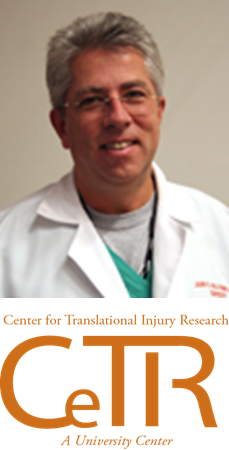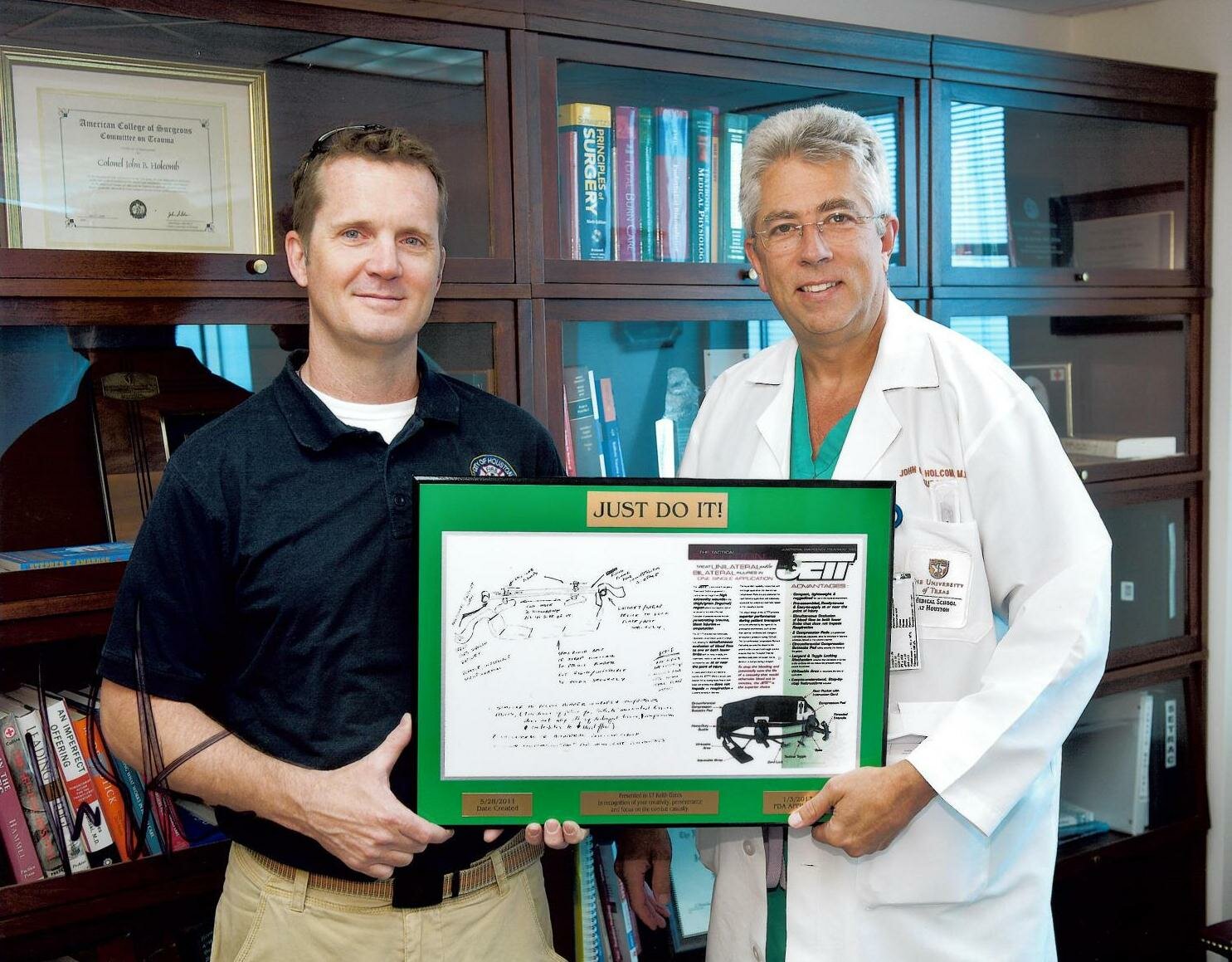Emerging Technology Fund Case Study

June 18, 2014 - The Center for Translational Injury Research (CeTIR) was established by funds provided, in part, by the State of Texas Emerging Technology Fund. The goal of CeTIR is to lead research and development of next-generation medical technologies in the areas of hemostasis, resuscitation and computerized decision support for trauma patients. The advancements and achievements of CeTIR and the Center’s Director, Dr. John Holcomb, was recently highlighted by the Office of the Governor. Check out the CeTIR Case Study on the Emerging Technology Fund website here. To learn more about CeTIR’s mission and capabilities check out the About Us page. For more information about our projects, visit the Research page.



 e
e hage remains a leading cause of early death in both civilian trauma and military combat casualty care. The transfusion of whole blood for trauma induced coagulopathy is not routinely done in civilian practice, but US military physicians have used fresh whole blood in every combat operation since the practice was introduced in World War I. So which is superior, whole blood or component therapy, or are they the same? CeTIR investigators, led by Dr. Bryan Cotton, conducted a randomized controlled pilot trial to begin to answer this question. A total of 107 patients were randomized over a 14 month period. With no differences in baseline demographics or injury severity, 55 patients were randomized into the whole blood group and 52 were randomized to component therapy. Compared to component therapy, whole blood did not reduce transfusion volume requirements in these injured patients and there were no differences in 24-hour and 30-day mortality between the two groups. However, the use of whole blood significantly reduced transfusion volumes in patients without severe brain injuries. The study results were published in the October issue of Annals of Surgery. Read More
hage remains a leading cause of early death in both civilian trauma and military combat casualty care. The transfusion of whole blood for trauma induced coagulopathy is not routinely done in civilian practice, but US military physicians have used fresh whole blood in every combat operation since the practice was introduced in World War I. So which is superior, whole blood or component therapy, or are they the same? CeTIR investigators, led by Dr. Bryan Cotton, conducted a randomized controlled pilot trial to begin to answer this question. A total of 107 patients were randomized over a 14 month period. With no differences in baseline demographics or injury severity, 55 patients were randomized into the whole blood group and 52 were randomized to component therapy. Compared to component therapy, whole blood did not reduce transfusion volume requirements in these injured patients and there were no differences in 24-hour and 30-day mortality between the two groups. However, the use of whole blood significantly reduced transfusion volumes in patients without severe brain injuries. The study results were published in the October issue of Annals of Surgery. Read More To increase public awareness of this globally common deadly disease, the Global Sepsis Alliance with their founding non-profit organizations created September 13th as World Sepsis Day. In honor of this day, the University of Texas MD Anderson Cancer Center’s Sepsis Collaborative held a community event that included informational exhibits, posters, and provided educational material on sepsis. One of CeTIR’s summer research students, Corbin Goerlich, presented a poster at this year event where he won the clinical poster competition. Mr. Goerlich, along with his primary mentor, CeTIR’s Dr. Laura Moore, conducted a prospective observational study to validate the use of a sepsis screening tool in emergency department patients utilizing StO2 measurements. The purpose of this study was to develop a screening tool for early identification of sepsis in the emergency department using readily available triage data. Early identification can lead to earlier treatment and reduced rates of morbidity and mortality. Visit the World Sepsis Day and Sepsis Collaborative websites for more information on sepsis.
To increase public awareness of this globally common deadly disease, the Global Sepsis Alliance with their founding non-profit organizations created September 13th as World Sepsis Day. In honor of this day, the University of Texas MD Anderson Cancer Center’s Sepsis Collaborative held a community event that included informational exhibits, posters, and provided educational material on sepsis. One of CeTIR’s summer research students, Corbin Goerlich, presented a poster at this year event where he won the clinical poster competition. Mr. Goerlich, along with his primary mentor, CeTIR’s Dr. Laura Moore, conducted a prospective observational study to validate the use of a sepsis screening tool in emergency department patients utilizing StO2 measurements. The purpose of this study was to develop a screening tool for early identification of sepsis in the emergency department using readily available triage data. Early identification can lead to earlier treatment and reduced rates of morbidity and mortality. Visit the World Sepsis Day and Sepsis Collaborative websites for more information on sepsis.

